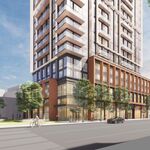unimaginative2
Senior Member
Chopping down the plants seems like a real shame, but I definitely see a problem with the raccoon... Was she hoping it would eventually turn into fertilizer?
Putting metal to the petal
City hacks down `natural' garden after neighbours complain it's nothing but weeds, and a dead raccoon
Aug 28, 2007 04:30 AM
Iain Marlow
Staff Reporter
Six days after Deborah Dale gave a city-sponsored seminar on growing natural gardens filled with native species, the garden that is her front lawn in Scarborough was razed – clipped to the stem by the city after neighbours complained the plants were weeds.
Dale, a biologist and past-president of the North American Native Plant Society, spent 12 years nurturing the garden. It contained about 200 species of plants.
"When my mom was dying, this was where I came to take my mind off things," she said yesterday. "Just because a plant isn't familiar to you doesn't mean it's a weed. Most people don't know what a native species looks like."
Her Crittenden Sq. garden featured, among other things, two eight-year-old fragrant sumacs, some giant purple hyssops, and four varieties of milkweed plants, in which monarch butterflies had already laid eggs.
All told, her lawyer's letter to the city said, they clipped a total of about $10,000 in plants, for which she wants compensation.
Of course, to some of her neighbours, the garden was an overgrown mess of weeds – with the crown jewel of a dead raccoon.
"It's like a forest," said one who, like all others who found problems with the garden, refused to identify himself. "There's so many raccoons because of this house."
Another woman, amazed, asked: "That's a garden?"
One neighbour said she smelled dead raccoon whenever she opened her kitchen window. Outside, next to her house and on Dale's property, two men pointed to a small tuft of fur edged with yellow leaves.
"It smells. Oh my God," said a young girl.
Dale, though, said she has a problem with her hip and the raccoon was inaccessible. She said it was planted there by neighbours.
The garden's destruction likely occurred as a result of communication breakdowns between Dale and the city. Bill Blakes, a manager in the city's licensing department, said the proper warnings were filed.
Dale insisted the city ignored attempts to prove her garden was not weeds.
Blakes said his office has records only of complaints against Dale's property – overhanging branches, waste, long grass and weeds.
Regardless, the disagreement certainly occurred over a misunderstanding on the concept of a garden.
Other lawns in the neighbourhood, like Wajid Alli's, are normal. He moved there in 1990 and said he gets along with Dale just fine.
"I am in this yard all the time. I play with my grandchildren here, right here in the yard. And I play cricket here," he said, adding that chasing balls into her yard doesn't bother him, since he was used to chasing them in the bushes of Guyana.
No one is more sympathetic to Dale's loss, however, than Douglas Counter, who took his right to unconventional gardens all the way to Ontario's Superior Court, and won.
His was a pesticide-free, storm water filtering garden of hummingbird-sized moths. Adjoining the Etobicoke house he has lived in all his life, it attracted more than just moths, he added.
"My father, who was 75 at the time, had never seen fireflies in the city."
Putting metal to the petal
City hacks down `natural' garden after neighbours complain it's nothing but weeds, and a dead raccoon
Aug 28, 2007 04:30 AM
Iain Marlow
Staff Reporter
Six days after Deborah Dale gave a city-sponsored seminar on growing natural gardens filled with native species, the garden that is her front lawn in Scarborough was razed – clipped to the stem by the city after neighbours complained the plants were weeds.
Dale, a biologist and past-president of the North American Native Plant Society, spent 12 years nurturing the garden. It contained about 200 species of plants.
"When my mom was dying, this was where I came to take my mind off things," she said yesterday. "Just because a plant isn't familiar to you doesn't mean it's a weed. Most people don't know what a native species looks like."
Her Crittenden Sq. garden featured, among other things, two eight-year-old fragrant sumacs, some giant purple hyssops, and four varieties of milkweed plants, in which monarch butterflies had already laid eggs.
All told, her lawyer's letter to the city said, they clipped a total of about $10,000 in plants, for which she wants compensation.
Of course, to some of her neighbours, the garden was an overgrown mess of weeds – with the crown jewel of a dead raccoon.
"It's like a forest," said one who, like all others who found problems with the garden, refused to identify himself. "There's so many raccoons because of this house."
Another woman, amazed, asked: "That's a garden?"
One neighbour said she smelled dead raccoon whenever she opened her kitchen window. Outside, next to her house and on Dale's property, two men pointed to a small tuft of fur edged with yellow leaves.
"It smells. Oh my God," said a young girl.
Dale, though, said she has a problem with her hip and the raccoon was inaccessible. She said it was planted there by neighbours.
The garden's destruction likely occurred as a result of communication breakdowns between Dale and the city. Bill Blakes, a manager in the city's licensing department, said the proper warnings were filed.
Dale insisted the city ignored attempts to prove her garden was not weeds.
Blakes said his office has records only of complaints against Dale's property – overhanging branches, waste, long grass and weeds.
Regardless, the disagreement certainly occurred over a misunderstanding on the concept of a garden.
Other lawns in the neighbourhood, like Wajid Alli's, are normal. He moved there in 1990 and said he gets along with Dale just fine.
"I am in this yard all the time. I play with my grandchildren here, right here in the yard. And I play cricket here," he said, adding that chasing balls into her yard doesn't bother him, since he was used to chasing them in the bushes of Guyana.
No one is more sympathetic to Dale's loss, however, than Douglas Counter, who took his right to unconventional gardens all the way to Ontario's Superior Court, and won.
His was a pesticide-free, storm water filtering garden of hummingbird-sized moths. Adjoining the Etobicoke house he has lived in all his life, it attracted more than just moths, he added.
"My father, who was 75 at the time, had never seen fireflies in the city."




